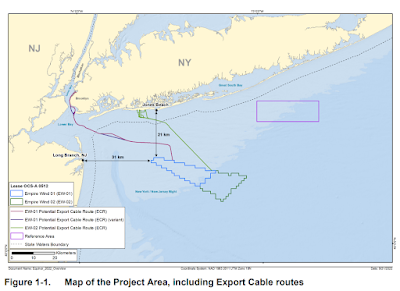It’s Time for a “Reduction” in Reduction Fisheries
This bill would keep the pogy boats at least one-half mile from land where the water is shallow, and the risk of ecosystem damage is high. While this is a good idea, the legislation does not go nearly far enough.
The Gulf menhaden reduction fishery is the largest fishery
in the Gulf of Mexico and the second largest fishery in the United States. This
industry uses spotter planes and massive mother ships to scoop up whole schools
of fish, which they “reduce” to fish oil and fish meal for use as pet food and
feed for fish farms. Every year, the industry removes more than two billion
fish from the Gulf. 85% of the catch is in Louisiana waters.
Gulf menhaden are a critical part of the Gulf ecosystem,
serving as forage for many predator species, including gamefish like redfish
and speckled trout, marine mammals like dolphins and whales, and birds like
osprey and pelicans.
Only two companies are involved in this fishery and both are
owned by foreign multinational fishing conglomerates. Omega Protein is owned by
Cooke Inc, a Canadian company with salmon farming and trawling operations
around the world, and Daybrook is owned by Oceana, a South African company with
many tentacles.
As it stands today, the Gulf menhaden fishery has no catch
limit, so nothing is preventing another foreign company from setting up shop in
Louisiana. In fact, rumor has it that a firm is currently snooping around Houma
to open another pogy reduction plant. Can we really afford to extract billions
more fish from the Gulf of Mexico ecosystem?
The answer is a resounding NO, and we all know that
increasing catch in the gulf would be a nightmare. That is because menhaden
feed so many other species. In a recent report to the Gulf States Marine
Fisheries Commission (GSMFC), a scientific model showed that the current catch levels
in the pogy fishery cause major declines in important gamefish species like our
redfish and speckled trout.
The menhaden industry has a long history of flouting the law
and undermining conservation. Omega
Protein intentionally overfished their limits in the Chesapeake Bay and
frequently violated the Clean Water Act and various labor protection laws. The company even ran afoul of the Securities
Exchange Commission and was forced to pay a fine.
Unfortunately, these foreign companies succeeded in convincing some powerful members of the Louisiana legislature to oppose the bill. How could this be you wonder? Could it have anything to do with campaign contributions?
When the Senate Natural Resources Committee meets on Tuesday
to consider the legislation, will those who received campaign donations from
the pogy industry vote to do the right thing?
The committee Chairman, Senator Hensgens, and Committee member Senator
Allain each accepted $1,500 from Omega Protein, while Senators Lambert and
Hewitt took $1,000. On the other hand,
Senators Fesi, Bouie, and Connick took no money from the industry.
Charter boat owner and founder of Menhaden Defenders










Comments
Post a Comment